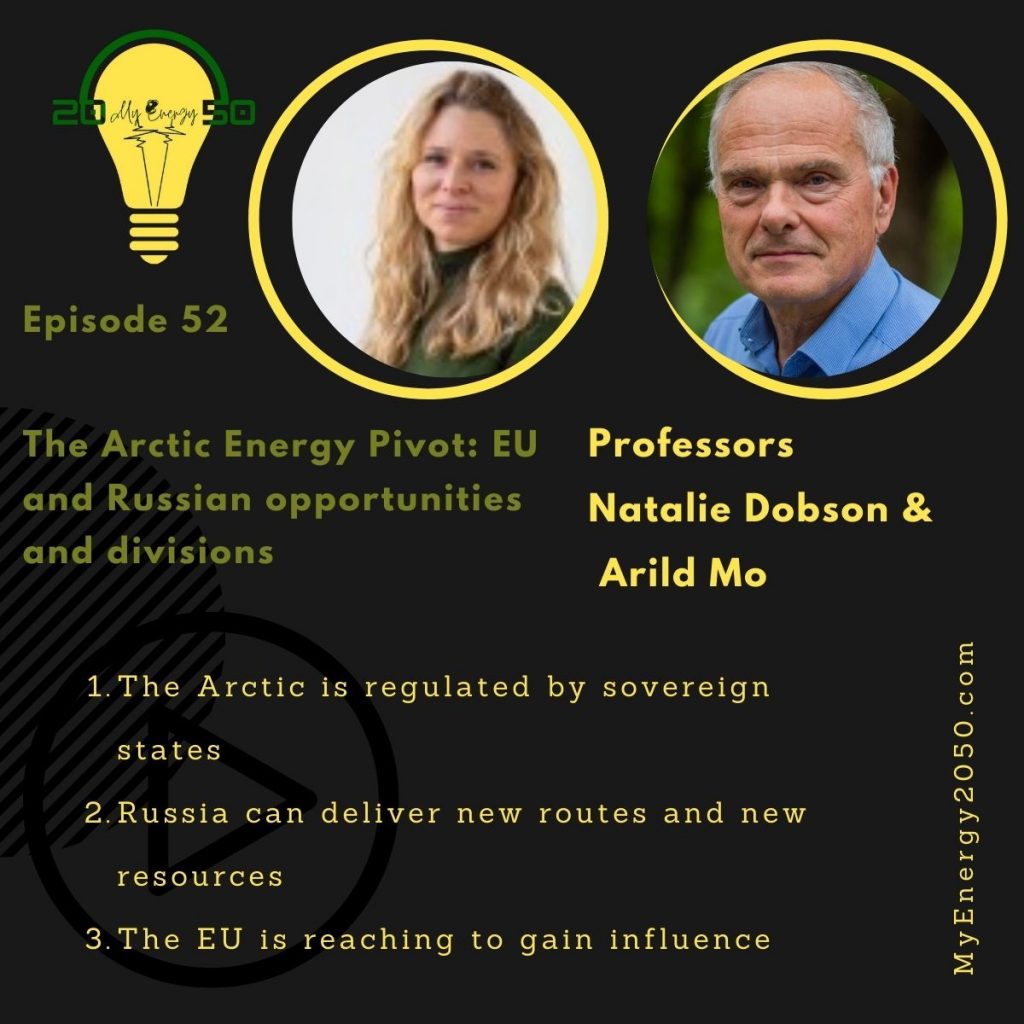This week we speak with Professors Natalie Dobson an Assistant Professor at Utrecht University, Department of International and European Law and Professor Arild Moe, Senior research fellow at Fridtjof Nansen Institute. As usual, I’ll keep their long list of individual achievements short, but it is impressive as each is making a significant contribution to understanding relations in the Arctic.
This recording is from an online roundtable discussion held at Central European University, in our Energy Policy Research Group. I’ve edited the discussion for the podcast. As you will hear, there’s a wealth of information to inform how we understand both the EU’s policy perspective toward oil and gas exploration in the Arctic area, and Russia’s ability to expand their own exploitation of the oil and gas wealth in the region. This discussion goes beyond geopolitical considerations, and delves into both the legal framing the EU is attempting to implement and also the strategic decision-making done by the Russian state.

The key topics that are covered in this discussion fall under three broad headings: EU Policies, Russian Policies and Climate Change and the Arctic. Specifically, nine questions are answered:
EU Policies
Why is EU policy towards the Arctic important?
How has EU Arctic policy changed over time?
How does the EU attempt to influence Arctic policy?
Russian Policies
What are Russian policies towards oil and gas exploration in the Arctic?
What is the impact of LNG on Russian gas policies?
What is the history of foreign investment into the Russian oil and gas sector in the Arctic?
Climate change and the Arctic
How important is the Arctic to combating climate change?
What is the impact of a warming climate on oil and gas exploration in the Arctic?
Should there be a global freeze on oil and gas extraction from the Arctic?
In addition to these questions we have a short discussion about the impact of sanctions and what a war in Ukraine could mean in terms of Western sanctions on the Russian oil sector.
And a final note for regular listeners. The past few episodes of the podcast were sparse, as I also came down with Covid – along with half the world. All I can say is thank goodness for the three shots. Moving forward I’ll do my best to get back on the weekly schedule.
Dr. Michael LaBelle is an associate professor at Central European University in the Department of Environmental Sciences. He produces the My Energy 2050 podcast to change how we communicate and improve the energy transition.
